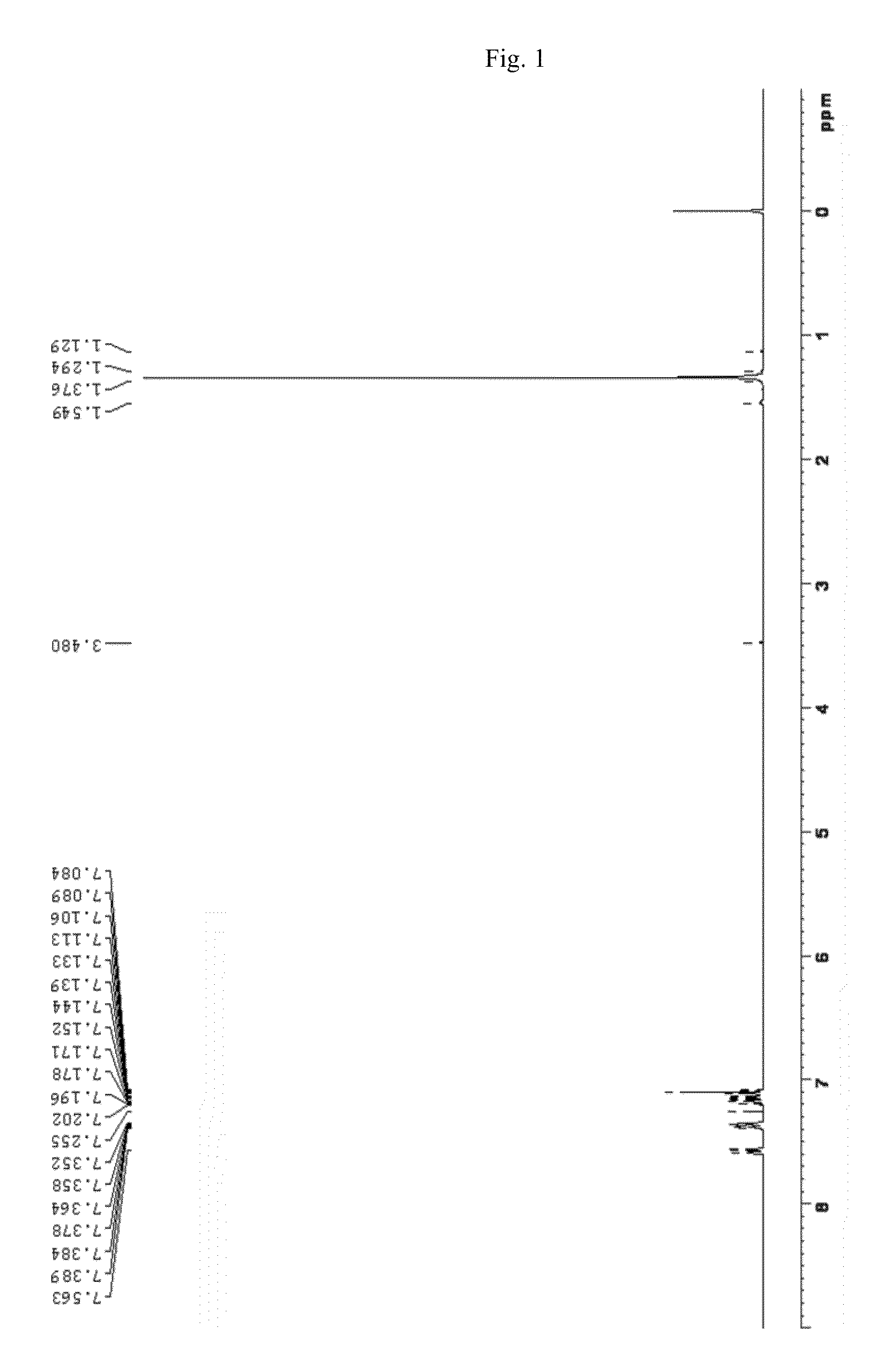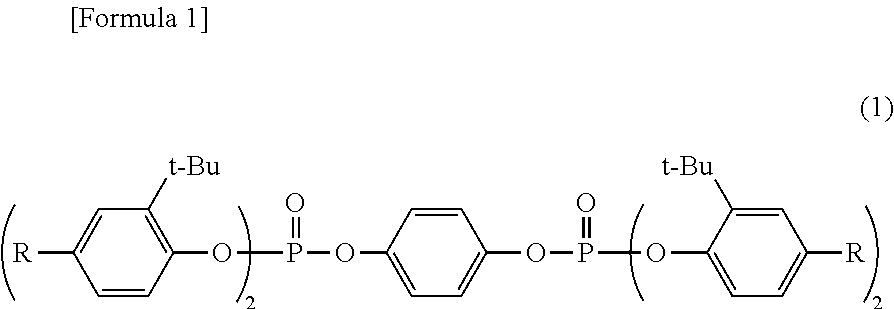Phosphorus compound, method of preparing the same and flame retardant thermoplastic resin composition including the same
a technology of phosphorus compound and thermoplastic resin, which is applied in the field of new phosphorus compound, a method of preparing the same, and a flame retardant thermoplastic resin composition including the same, can solve the problems of gas evolution, degradation, and explosion of plastic polymer and synthetic resin applications, and achieves superior flame retardancy, heat resistance and impact strength, and improved thermal stability and hydrolysis resistance. , the effect of improving the temperature resistance and the effect of hydrolysis
- Summary
- Abstract
- Description
- Claims
- Application Information
AI Technical Summary
Benefits of technology
Problems solved by technology
Method used
Image
Examples
example 1
[0069]2 equivalents of phosphorus oxychloride (Aldrich), 4 equivalents of 2-t-butylphenol (Aldrich) and 4.4 equivalents of triethylamine are added to toluene (in an amount of 10 times that of the phosphorus oxychloride) in a reactor. The mixture is reacted by heating to 130° C. with stirring for at least 10 hr. After completion of the reaction, the reaction mixture is allowed to cool to room temperature. To the reaction mixture are added 1 equivalent of hydroquinone, 2.2 equivalents of triethylamine and toluene (in an amount of one half of the amount initially added), all of which are purchased from Samchun Chemical (Korea). The reactor is heated to 130° C., followed by stirring for at least 10 hr. After the reaction is finished, the reaction mixture is allowed to cool to room temperature and washed three times with water (in an amount of one half of the total amount of the toluene added). The aqueous layer is discarded and the organic solvent is removed under reduced pressure. The ...
example 2
[0079]5 parts by weight of the phosphorus compound of Formula 1-1 and about 100 parts by weight of a bisphenol A type polycarbonate (PANLITE L-1250W, Teijin (Japan)) having a weight average molecular weight of 25,000 g / mol are extruded using a general twin-screw extruder to produce pellets. The pellets are dried at 80° C. for 2 hr and molded using a 10 oz injection molding machine at 200-280° C. to produce a specimen. The mold temperature is 40-80° C.
examples 3-6
[0083]The procedure of Example 1 is repeated, except that the phosphorus compound of Formula 1-1 and a blend of a bisphenol A type polycarbonate (PANLITE L-1250W, Teijin (Japan)) having a weight average molecular weight of 25,000 g / mol and a rubber reinforced styrene resin (CHT, Cheil Industries Inc. (Korea)) as a base resin are mixed in accordance with the compositions shown in Table 3.
[0084]
TABLE 3Examples3456Polycarbonate resin80808080Rubber reinforced aromatic vinyl polymer20202020Phosphorus compound of Formula 1-112141618Flame retardancy(UL94, 2 mm)V-0V-0V-0V-0Flame retardancy(UL94, 1.5 mm)V-1V-0V-0V-0Heat resistance rating (HDT, ° C.) 96.293.291.290.6
PUM
| Property | Measurement | Unit |
|---|---|---|
| acid value | aaaaa | aaaaa |
| acid value | aaaaa | aaaaa |
| acid value | aaaaa | aaaaa |
Abstract
Description
Claims
Application Information
 Login to View More
Login to View More - R&D
- Intellectual Property
- Life Sciences
- Materials
- Tech Scout
- Unparalleled Data Quality
- Higher Quality Content
- 60% Fewer Hallucinations
Browse by: Latest US Patents, China's latest patents, Technical Efficacy Thesaurus, Application Domain, Technology Topic, Popular Technical Reports.
© 2025 PatSnap. All rights reserved.Legal|Privacy policy|Modern Slavery Act Transparency Statement|Sitemap|About US| Contact US: help@patsnap.com



